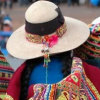Session notes taken by Caroline Stauffer.
Participants:
Jaro:
Marice – Colombia. Studies Lib and Info Science. Programs.
Probbas from MobileActive.org.
Babiola Bleu. Universidad de Chile Journalism Student.
Emily Jacobi Digital Democracy.
Anahi student director Ushahidi Chile Columbia SIPA
Caroline Stauffer Ushahidi-Chile @ SIPA
Bonnie Banks – consulting firm strategic planning and decision making.
Bernard – Global Voices. Italian editor.
Juan – Mexico NGO Redes Technological activism.
Gregory – Global Voices Russia. works with InterNews.
Uzbekistan.
Session May 7 – Ushahidi (crisis)
Jaroslav Valuch
Deploying Ushahidi more complicated than using it. Tech team working on the platform so it will be easy to deploy for anyone without technical knowledge.
Haiti – before Chile Earthquake.
Had no prior experience with Ushahidi before Haiti. Went to Fletcher School in Boston for 5 days – ended up in Haiti for two months.
Ushahidi is a platform for crowd sourcing crisis information following any sources of information available. Categorizing and putting it on a map.
People usually think Ushahidi is an NGO. (In Haiti / international orgs)… people thought it was an NGO working in Haiti. It is not – it is an Internet platform.
Ushahidi is like google – google doesn’t create info. for you – it gives you information that is already there.
Fletcher school in Tufts University Boston.
Disaster response – first time platform was deployed for such a large-scale disaster. At the first moments we just thought it was important to crowd-source info and map it… didn’t plan for it to end up like a 911 service to save people – but that’s where we ended up.
Taking information from media and compiling is one thing… but once you ask people to send you information about their needs – it is really a responsibility. We ended up linking up with responders – humanitarian NGOs who were taking action on those reports.
Started by identifying possible sources of information. People were taking text messages… also follow radio stations, different channels of information.
Twitter and Facebook are not greatest channels of information. Stuff is retweeted. No means for verification. But it was really crucial. Power of crowd sourcing – saw clustering of information… areas where we were getting most reports – areas that are badly affected. Had accurate GPS coordinates of schools, hospitals. We made a special list of this information on spreadsheets. Search and Rescue teams were deploying teams to these areas.
First few days – traditional media, and Twitter, Facebook.
Then got Short Code – hundreds of thousands of numbers coming…
Missing people – sent to Google people finder
Only actionable information is forwarded to search and rescue teams – means there is a location and a potential response. Mostly sent to US Coast Guards and Marines.
Crowdsourcing – more information is better – closer to reality.
Question – How to separate important for not relevant information?
Messages from all over area – know there’s something there when a certain mass is reached
How do people know about it?
Local radio stations on the ground in Haiti – some worked. Internews went around and broadcast short code.
Anahi
Caroline and Anahi were already looking at Ushahidi Iraq.
In 24 hours we found ourselves managing the platform. In the beginning we thought situation was going to be very similar to Haiti but it wasn’t.
Needs emerging from media monitoring were different. Missing people. No information no Internet.
We first started monitoring media. Trying to collect as much information as possible.
First two weeks we had no idea if anyone was using it.
Then we started receiving info. from people saying we are using your information.
Got in contact with ChileAyuda. They set up a phone number for the platform.
Companies in Chile were not willing to give a Short Code.
We contacted immediately radio station. Radio Bio Bio broadcast our number a couple weeks later.
People texting us asking people to respond to their needs.
It was very difficult in the first three weeks to know how to manage information.
After a certain period of time realized there was no sense in running from New York.
Civil Society in Chile very strong – want to use to information for Reconstruction.
Trip to Chile: We weren’t expecting so much interest to use the Ushahidi platform. 10 meetings with different NGOs RECONSTRUYE ACCION Sur Maule. Training with San Sebastian University and La Frontera in Temuca. This setting up society.
Needs are changing a lot. What info needs to be done.
Ease at changing categories.
Bonnie Banks –strategic plan in 911 community. Coordinated rapid response – spent two weeks trying to get them where they are needed… ex-special operation soldiers changed in search and rescue – team robaccon. Had not heard of Ushahidi and tried to coordinate with the government. Have to coordinate with military.
Citizenship in Chile is receiving very conflicting information.
Chilean – a lot of money invested in moving what falls. Tracks to move people somewhere else.
Crowd sourcing is perfect (every small pueblo in the middle of no where has cellulars) Jaro – (well it’s not perfect)
Mobile Active – Ushahid was successful in Kenya… then a slew of election monitoring that weren’t so successful… then Haiti – infrastructure was there from international organizations able to build trust. Often in talks – people forget that Ushahidi is just a platform.
Q – what is being done to communicate people what Ushahidi really does?
Anahi – next step is Chileans living in Chile are completely capable of running with it… they now get what Ushahidi is. The link between Ushahidi as an emergency and what it can be in the long term – once the platform is useful to you and what you are.
Emily – We started using Ushahidi for a population in Southeast Asia – we needed a way to take data from human rights groups in burma in last 20 years. Lots of data about myanmar… but not easy to find it. Ushahidi advantage- easy to visualize. We actually aren’t crowd sourcing…. Using our own people. Definition could even be modified from that.
Challenge: getting human rights group used to it. When people know how to use a technology – they’ll use it in times of crises. If you have a tool that’s better for visualizing crisis.
Significant difference between first few weeks of earthquake.
Emily – what are possible uses of Ushahidi in your communities?
Jaro – in Haiti lways a goal to hand it over. We are getting close to do it. What’s next? With Haiti and Chile – there are so many lessons learned how it could be more modified. Now it’s the question of the Ushahidi developers to incorporate. There were some bugs in the system. But these employments help us to identify these goals… within months there will Ushahidi 2.0… will be much easier to use.
Haitians did not know about Ushahidi – it took days when it should have taken hours. How can we work together to be ready for next disaster so we don’t have to wait days.
Spread the word?
Jaro – haven’t had an opportunity to do this as much as needed. we are still stuck in Haiti…
Faviola (Universidad Chile )– learned about Ushahdii- Chile in two days – returned to Santiago. Pointed out importance of Twitter in Chile – that’s where she saw it. – chatting on Twitter – deploying the stuff.
Cooperation of Traditional Media?
Jaro – one of the most amazing things I see is the combination of old and new media. Now we are trying to phase out from text messaging… and we have. They were really crucial two days after the earthquake… now that reliable. Focusing on local radio in Haiti is something we really hope to work on. Getting radio stations the alerts so that they can broadcast them. We will set up frontlineSMS that we will ONLY distribute to people we know – journalists, etc… increases sense that information is accurate.
?Anonymity?
Jaro – in Haiti more important to make info. public… but in election monitoring anonymity is important.
We definitely won’t hand it over to the Haitian gov – we want a consortium of independent bodies. More of them with administrator access.
? Even text messages going through local telephone companies could have privacy issues.
Failure in Haiti – we did not have time to explain to people who is running platform, why they should send platform why owner of platform who has control can be trustworthy.
Chile – only two people in Ushahidi-Chile can see number. Haiti had number.
Emily – when people start to see that numbers aren’t publicized they gain confidence in submitting information.
Jaro – really depends on who is using the platform. Haiti got information from orphans – sent information directly to child protection cluster in UNICEF – the information never appeared on the web site, but it was still acted upon.
Boni – platform that encrypts cell phones?
Emily but encrypting SMS makes you a target. Definitely other ecurity features being built for SMS.
Mexican gov forced everyone to register phone numbers… state dept. trying to force people to do that.
SMS in disaster zones.
1,130 NGOs in Haiti – they are all putting out their own short codes. There needs to be SMS code of conduct. Going to be a big mess – people are getting confused and upset about the fact they are subscribing to SMS they didn’t subscribe to. Didn’t happen in Haiti should happen in other disasters.
UN OCHA was the first place Ushahidi-Haiti went. Center of info in disaster zones.










